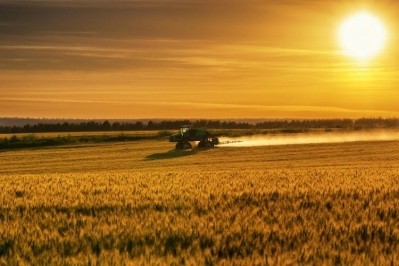Ditch soy alternatives for cows’ milk says the Sustainable Food Trust

A 2018 University of Oxford study claimed that making a glass of cows’ milk produces almost three times more greenhouse gas emissions and consumes nine times more land than any plant-based milk alternative.
But these findings have been challenged by fresh research from the Sustainable Food Trust.
The SFT contends that soy milk -- a popular alternative to cows' thanks to a protein content almost comparable to dairy -- damages the environment because its grown on farms created by burning large swathes of Amazon rainforest.
The SFT study, which recommended that local alternatives to soy and palm meal will help save rainforests, noted that soy is commonly used in animal feed but concluded it is nevertheless far better to drink milk, ideally from cattle fed on grass.
“UK livestock farmers could use more local alternatives to soya meal and palm kernel meal without reducing productivity,” it said. “This is essential to reduce ever-increasing demand and associated destruction of rainforest in the Amazon and South-East Asia.
“But it is not just up to farmers. Vegans and others who buy milk substitutes made from soya for their latte and cappuccino, or breakfast cereal, are also harming the planet. They would do better to switch to milk from cows, and especially cows traditionally grazed on grass, if they want to help make a more sustainable planet.”
Dairy 'more efficient' than soy-based alternatives
The report contended dairy is the more sustainable choice because the conversion of soy into finished products for human consumption is more efficient in the dairy sector than in soy-based dairy alternatives.
The authors calculate that about 85 litres of milk is produced in the UK for every kilo of soya bean meal consumed by dairy cows. In contrast, no more than 7.5 litres of soya drink are produced from a kilo of whole soya beans.
As a result, drinking milk from cows in the UK uses 11 times less soy than consuming drinks made directly from soya.
In Europe as a whole, milk from cows is four times more efficient than soya drinks in terms of soya use. The average use of concentrates is higher on the continent because grass is a less productive crop in many countries than in the UK.
Significantly, the study concluded that even milk produced by dairy cows given diets containing soya bean meal is a more sustainable use of land than producing human drink products directly from soya beans.
Consumers and farmers alike should seek alternatives: SFT
The review noted that global production of soy and palm oil has doubled over the last 20 years and consumption is still rising. Together, the two account for 90% of global vegetable oil production and are used in processed foods and non-food products and also produce by-product meals used as animal feeds.
Demand is supported by both human and animal consumption. Soya meal is used in a wide range of foods and pet foods, but use of the meals in livestock feed plays a major role in making the cultivation of these crops profitable.
The use of soy in animal feed and finished products in markets like Europe is driving deforestation in countries like Brazil.
International commodities trader, Cargill, warned last year that it and other companies would not meet their 2014 commitment to eliminate deforestation from the production of agricultural products by 2020. At the same time, the significant increase in the number of fires in the Amazon became headlines internationally, with concern raised about associated greenhouse gas emissions, biodiversity loss and soil degradation.
Use of soy could be cut if farmers used more alternative sources of protein and consumers actively sought milk produced from cows that graze grass, the report argued.
The report highlight the wide range of alternative protein sources available for use in livestock nutrition, including rapeseed meal, distillers’ grains and pulse grains, including beans and peas. It noted that trials at the University of Nottingham have demonstrated that these alternatives can be used successfully and can even increase productivity in dairy cattle and pigs.
The SFT’s chief executive, Patrick Holden said: “This is an important study. It shows that livestock farmers could reduce their dependence on imported protein, which is produced at such a high environmental cost, and rely more on home produced feed. But it also shows that drinking cows’ milk uses far less soya than drinks made from soya, because most of the milk comes from grass. This highlights the importance of grass, a crop ideally suited to our climate and the grazing animals that turn it into high quality foods we can eat.”
Source:
'Strategies to reduce reliance on soya bean meal and palm kernel meal in livestock nutrition'
Journal of Applied Animal Nutrition


























